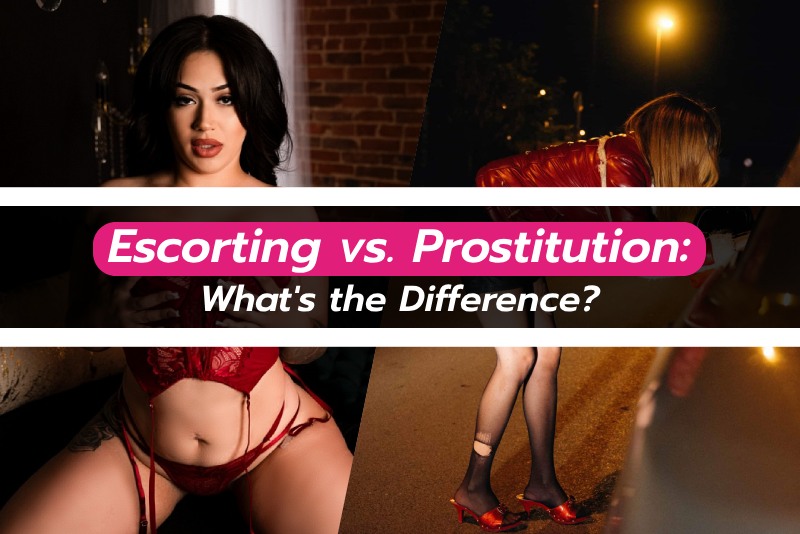
Escorting vs. Prostitution: What’s the Difference?
In the world of adult services, the terms “escorting” and “prostitution” are often used interchangeably, but they are not the same thing. While both involve providing companionship or sexual services in exchange for money, the legal framework differs significantly. Understanding the distinction between escorting and prostitution is crucial, especially in states like California where the laws are strict.
📚Related: How to Safely and Securely Book an Escort Online
What is Escorting?
Escorting is a legal service where individuals, known as escorts, are hired to accompany clients to social events, business meetings, or simply provide companionship. Escorts are paid for their time, attention, and social interaction, not sexual services. To work legally in California, escorts must obtain a valid license or permit.
However, engaging in sexual acts with an escort is considered a crime. If law enforcement believes there is probable cause that the escort was hired to engage in sexual acts at a later time, both the escort and the client may face prostitution charges.
What is Prostitution?
Prostitution involves the exchange of sexual services for money or other forms of compensation. Unlike escorting, prostitution is explicitly engaging in sexual acts in return for payment. Prostitution is illegal in California, and a conviction can have significant consequences, including potential jail time and fines.
Avoiding Prostitution Charges for Escorts
To avoid facing prostitution charges, escorts must:
- Clearly communicate to clients that any sexual activities are off-limits
- Avoid accepting offers or requests for sexual services
- Avoid exchanging sex for valuable items
- Document interactions with clients
- Have clearly defined written contracts with clients
- Establish a network of support, including a sex crimes lawyer
Penalties and Potential Consequences of Prostitution
The penalties for prostitution-related offenses in California under Penal Code 647(b) include:
- Up to six months in county jail and a $1000 fine for a first-time conviction
- A minimum sentence of 45 days in county jail plus a $1000 fine for a second-time conviction
- A minimum sentence of 90 days in county jail and a $1000 fine if convicted for a third time
Additionally, convictions for prostitution can also result in a permanent criminal record and having to register as a sex offender, which can negatively impact one’s employment prospects and reputation.
Legal Defenses Against Prostitution Charges
Several legal defenses may be employed against prostitution charges, including:
- Insufficient evidence to substantiate the offense
- Lack of monetary exchange or other forms of compensation for sexual services
- Absence of agreement between the parties to engage in sexual activity in exchange for payment
- Unlawful tactics by law enforcement officers, such as entrapment or violation of constitutional rights to arrest you
- Mistaken identity or false accusations
A skilled attorney can thoroughly examine the facts of the case, gather relevant evidence, and build a strong defense strategy for your specific case.
In conclusion, while escorting and prostitution may seem similar, they are distinct under California law. Escorting is a legal service that provides companionship without sexual acts, while prostitution is the illegal exchange of sexual services for money or other compensation. Understanding the differences and following the law is crucial to avoid facing serious legal consequences.



